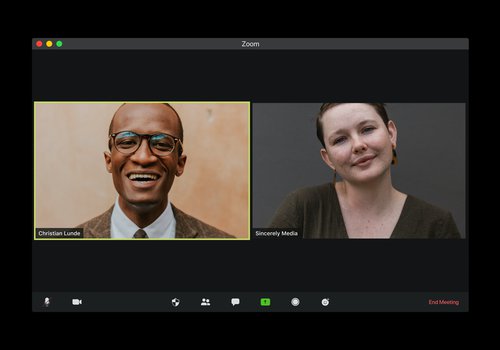I want to discuss what’s called, rather mysteriously, “the hidden job market.” I’m not talking about some secret place. It’s simply a term used to describe at least 80% of available jobs and they are not posted or advertised.
Instead, these jobs are filled through the hidden job market, which is characterized by networking, personal referrals, and knowing the right people at the right time.
The pandemic has made the hidden job market more valuable than ever. By accelerating trends in remote work along with automation, more workers are expected to need to switch occupations. The hidden job market is valuable to succeed in this process.
Although this job market is called “hidden,” it’s more than possible for you to tap into it if you’re willing to make the effort and perhaps step outside of your comfort zone. With that in mind, here are a few proven tips to get you involved in the hidden job market.
Network more and network smarter
Networking has always been the key to landing your next good job, and there’s nothing about pandemics or economic swings that’s going to change that. So, work harder to build your network, not just in quantity, but in quality. Try to connect with people with inside information about unposted jobs. Join a professional networking group filled with other job seekers and possibly a few mentors who might be able to open doors closed to you.

For example, LinkedIn has groups you can join based on your interests, such as alumni groups with many colleges. There are groups on healthcare finance, digital marketing, Salesforce, robotics, human resources, recruiting, account management, project management, humor, and at least hundreds more.
Reach out to potential employers, even if they don’t have any applicable job openings
A phone call, an email, or, if you can set it up, a Zoom meeting with a hiring department can put you on their radar. Then when a suitable job does open up, guess who they’ll think of first?
Sign up for Google News Alerts
Another way to learn about hidden jobs is to stay up-to-date with prospective employers. Google News Alerts make it easy to do this. Just go to the Google Alerts page and type in which employers, decision makers, and fields of interest you want to hear about. Then you'll start receiving emails with the latest news Google has turned up.
Attend conferences and professional organizations
This may have to wait until the world is safe from COVID, but in the meantime you can research national and local organizations that pertain to your career interests. Find out about membership and look for ways that you can get active and contribute. Try to network with the group organizers via email or Zoom. Give it time and you’re sure to make some good contacts. Some conferences are being held online.
Practice your elevator speech
When a potential contact asks you what you do or what you want to do, you can’t afford to fumble through an answer. Have a clear and concise statement in mind about your skills and career aspirations that you can recite in a way that doesn’t sound like you’re reciting. Remember, you’re a skilled, highly qualified problem solver, not a desperate job seeker, so talk like the valuable asset you are.
Look within your own company
Your next big career advance may be right down the hallway. Let the appropriate people in your present employer’s HR or management group know that you have aspirations beyond your current position. Remember that internal candidates often get preference over outside applicants when positions need filling, saving employers the effort and expense of advertising job openings or engaging with search firms. I’ve helped many clients succeed in landing their next job at the very same company they are working at even when they hadn’t expected that to happen.
And lastly

This maybe the best way to crack into the hidden job market, and now might be the opportune time to roll out this tried and true job search strategy that’s often used in better times. Setting up and going on an informational interview says a lot of good things about you: your interest in the company, your initiative, and your dedication and determination to get your foot in the door – all qualities that can set you apart from other job seekers.
Don’t be fearful of this tactic. If you approach it correctly your interview subject will be flattered that you value their opinion so much. Your “15 minutes of fame” in front of them (or on the phone or computer screen) could put you in line for a great, unposted job opening.
Practice these do’s and don’ts for setting up your next informational interview.
DO:
- Build a comprehensive list of experts and decision-makers in the field or industry of interest to you. Be creative in tracking these people down. Ask friends, coworkers, and contacts you’ve cultivated in your community or business life.
- Send an email or letter of introduction to some of the people on your list. Briefly introduce yourself and explain your reason for contacting them. Make it clear that you’re interested in learning more about the company and its industry, and that you are not hustling for a job. Ask for just a short amount of their time, maybe 15 minutes. Indicate your willingness to be flexible on days and times to best fit into their schedule.
- Prepare a solid list of questions about the company before the interview. Do your research to show that you already have some grounding in the field. Bring a notebook along to write down answers.
- Be ready to deliver your elevator pitch at the appropriate time in your meeting.
- Ask for referrals. Don’t leave this step out. It can be as simple and direct as asking “Do you know of any other people at this company that I might want to talk to? Can you help me connect with them?”
- Show your appreciation with a follow-up thank you email sent within 24 hours if possible. Not only is this common courtesy, but this gesture can do a lot to strengthen your relationship with that person. (And there’s still something special to be said about a handwritten note sent by snail mail.)
DON’T:
- Ask for a job during the interview. You’re there to gather information and that’s it.
- Present your resume. Perhaps this sounds like odd advice coming from a professional resume writer, but presenting your unsolicited resume now will alter the tone of your meeting and cast you in an unflattering light. Of course, if the person you’re meeting with requests your resume, you can always send them a copy (along with your thank you note).
The traditional job market is more competitive now due to the COVID economic crisis, so the value of tackling the hidden job market is even more important than usual. By using the above-mentioned strategies, you’ll find that the hidden job market will come out of hiding for you.
•••
Whether you’re answering posted job leads or plying the waters of the hidden job market, I’m here to help you succeed. Contact me today for more tips and strategies that can work best for you. Just let me know what part of the job search process you want to discuss.
